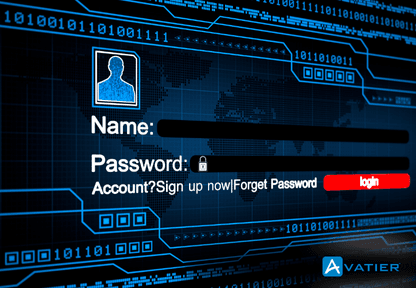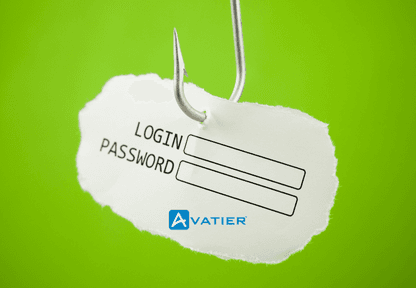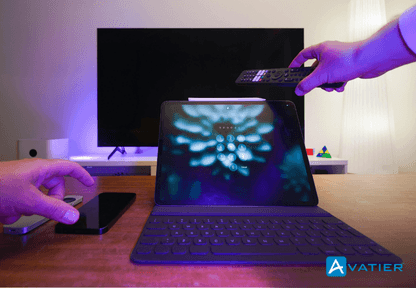October 13, 2025 • Mary Marshall
Why Identity Management is Critical to Securing Our Digital World: Cybersecurity Awareness Month 2023
Discover why robust IM is the cornerstone of enterprise security in today’s digital landscape, with AI-driven solutions.

Identity has become the new perimeter. As we observe Cybersecurity Awareness Month this October, it’s crucial to recognize that traditional network boundaries have dissolved, leaving identity as the primary security control in our increasingly complex IT environments. With 82% of breaches involving the human element according to Verizon’s 2022 Data Breach Investigations Report, robust identity management has never been more critical.
The Evolving Identity Threat Landscape
The digital transformation accelerated by global events has permanently altered how organizations approach security. Remote work, cloud migration, and the proliferation of SaaS applications have expanded attack surfaces exponentially. Consider these sobering statistics:
- Identity-based attacks have increased by 98% since 2020 (Microsoft Security Intelligence Report)
- Credential theft remains the most common attack vector, with over 61% of breaches involving credentials (IBM Cost of a Data Breach Report)
- The average cost of a data breach reached $4.45 million in 2023, with compromised credentials being the most expensive attack vector
As traditional network boundaries dissolve, organizations must recognize that managing digital identities has become the cornerstone of enterprise security. This shift requires a fundamental rethinking of how we approach identity management.
Why Traditional Identity Solutions Fall Short
Legacy identity platforms like Okta and SailPoint were built for a different era. While they’ve adapted their offerings, many still rely on outdated architectures that struggle with:
- Siloed Identity Information: Identity data scattered across multiple systems creates blind spots and inconsistent security policies
- Manual Workflows: Time-consuming approval processes create friction and security gaps
- Limited Visibility: Lack of comprehensive oversight across all identity types (human and non-human)
- Reactive Security Postures: Responding to threats after they occur rather than proactively preventing them
These limitations have real-world consequences. According to Gartner, organizations with fragmented identity management approaches experience 30% more identity-related security incidents than those with unified solutions.
The Avatier Difference: Identity Anywhere Lifecycle Management
Avatier’s Identity Anywhere Lifecycle Management represents a paradigm shift in how organizations approach identity security. Unlike competitors constrained by legacy architectures, Avatier built its platform with modern challenges in mind:
Unified Identity Control Plane
Avatier unifies identity governance across your entire ecosystem—cloud, on-premises, and hybrid environments—creating a single control plane for comprehensive identity management. This holistic approach enables:
- Consistent policy enforcement across all systems
- Real-time visibility into access relationships
- Automated lifecycle management from onboarding to offboarding
- Seamless integration with existing infrastructure
AI-Powered Identity Intelligence
While competitors talk about AI, Avatier delivers truly intelligent identity management. Our AI capabilities:
- Detect anomalous access patterns before they become breaches
- Recommend appropriate access levels based on peer analysis
- Automate routine approval decisions, reducing security fatigue
- Continuously validate access rights, enforcing least privilege
Self-Service That Actually Works
The friction between security and productivity is a false choice. Avatier’s intuitive, mobile-first approach delivers:
- Simplified access requests through natural language interfaces
- Multi-channel approval workflows (mobile, email, chat)
- Automated provisioning that reduces wait times from days to minutes
- Seamless password management that reduces help desk burden
Identity Management: The Foundation of Zero Trust
As organizations embrace Zero Trust architectures, identity management becomes even more critical. The core principle of “never trust, always verify” requires robust identity verification at every access point.
Avatier’s approach aligns perfectly with Zero Trust principles through:
Continuous Authentication and Authorization
Gone are the days when a single login granted unrestricted access. Modern security requires continuous validation:
- Risk-based authentication that adapts to context
- Just-in-time access provisioning
- Automated de-provisioning when access is no longer needed
- Privileged access management with time-limited credentials
Comprehensive Multi-Factor Authentication Integration
MFA remains one of the most effective security controls, with Microsoft reporting that it blocks 99.9% of automated attacks. Avatier supports:
- Integration with leading MFA providers
- Contextual authentication based on risk factors
- Passwordless authentication options
- Step-up authentication for sensitive operations
Identity Governance and Compliance
Regulatory requirements continue to evolve, with more stringent identity controls required across industries. Avatier helps organizations:
- Maintain compliance with regulations like GDPR, CCPA, HIPAA, and more
- Automate access certifications and reviews
- Generate comprehensive audit trails
- Enforce separation of duties
The Human Element: Why User Experience Matters for Security
Security solutions that create friction drive users to find workarounds. Avatier’s approach recognizes that user experience is a security feature, not an afterthought.
Self-Service Identity Management
Empowering users with intuitive self-service tools:
- Natural language access requests
- Mobile-first design for anywhere, anytime access
- Simplified approval processes
- Automated provisioning that delivers immediate access
Reduced Help Desk Burden
Identity-related issues typically account for 20-30% of help desk tickets. Avatier’s self-service capabilities dramatically reduce this burden:
- Self-service password reset
- Access request management
- Automated onboarding and offboarding
- Group membership management
Identity Management for the Modern Enterprise
As we recognize Cybersecurity Awareness Month, it’s essential to understand how identity management supports broader security initiatives across different organizational contexts.
Identity Management in Regulated Industries
For organizations in highly regulated sectors like healthcare, finance, and government, compliance requirements add additional complexity to identity management.
Avatier for Healthcare delivers HIPAA-compliant identity solutions that:
- Enforce strict access controls to protected health information
- Automate access certifications and reviews
- Provide comprehensive audit trails
- Enable rapid deprovisioning when staff changes roles
Securing Remote and Hybrid Workforces
The permanent shift to remote and hybrid work models has eliminated the traditional network perimeter, making identity the primary security control.
Avatier’s identity solutions secure distributed workforces by:
- Providing consistent access policies regardless of location
- Enabling secure access to resources from any device
- Verifying user identity through contextual authentication
- Automating access revocation for departed employees
Managing Non-Human Identities
The proliferation of service accounts, API keys, and machine identities introduces new security challenges. These non-human identities often have extensive privileges yet receive less scrutiny than human users.
Avatier’s comprehensive approach includes:
- Automated lifecycle management for service accounts
- Just-in-time access for applications and services
- Continuous monitoring of machine identity behavior
- Regular rotation of credentials and secrets
Future-Proofing Your Identity Strategy
As we look beyond Cybersecurity Awareness Month, organizations must prepare for emerging identity challenges:
The Impact of Quantum Computing
Quantum computing threatens to break current encryption standards, potentially compromising authentication methods. Forward-thinking identity strategies must prepare for post-quantum cryptography.
Zero-Trust Network Access (ZTNA)
ZTNA represents the convergence of identity and network security, with access decisions based on identity, device health, and contextual factors rather than network location.
Decentralized Identity
Blockchain-based decentralized identity solutions promise users greater control over their digital identities while potentially reducing organizational liability for identity data.
Conclusion: Identity is the New Foundation of Security
As we observe Cybersecurity Awareness Month, it’s clear that identity management has evolved from a supporting function to the cornerstone of enterprise security strategy. The organizations that thrive in this new landscape will be those that:
- Unify identity governance across all environments
- Leverage AI to enhance identity intelligence
- Balance security with frictionless user experiences
- Automate identity processes end-to-end
- Extend identity controls to all entity types (human and non-human)
Avatier’s Identity Anywhere platform delivers on all these requirements, providing a modern approach to identity management that addresses today’s challenges while preparing for tomorrow’s threats. Unlike legacy providers constrained by outdated architectures, Avatier built its platform for the modern, distributed enterprise.
As you evaluate your identity strategy this Cybersecurity Awareness Month, consider whether your current approach truly addresses the evolving threat landscape or simply maintains the status quo. The security of your digital ecosystem depends on making the right choice.









